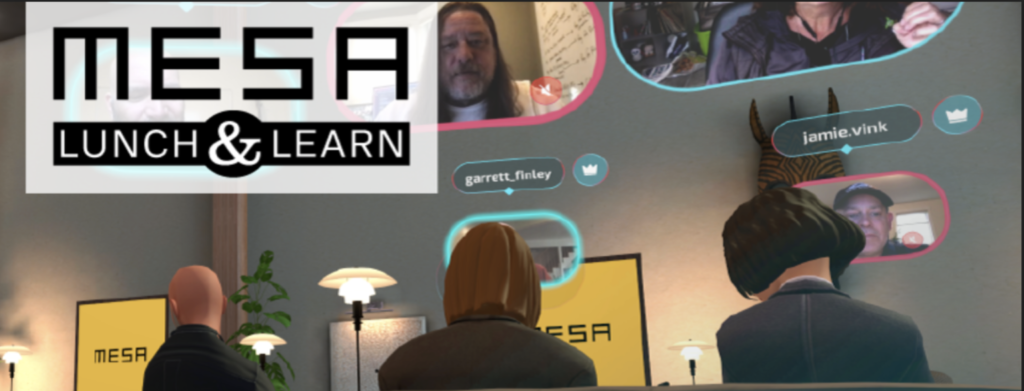M+E Connections

Digital Sales Expert Explores How Immersive Tech Can Enhance Your Marketing
Story Highlights
Immersive technologies can significantly enhance the marketing of media and entertainment companies, according to Natascha French, CEO and founder of digital sales and marketing agency Scale Strategies.
“There’s lots of ways to tell your story. But when you look at marketing, you always want to make sure what is the right way and what is the most impactful way to tell your brand story,” she said during a MESA “Lunch and Learn” discussion online April 21 via its MESAverse platform and Zoom.
“As we’re telling our story or we’re promoting our brand, it’s so important to have a clear message of what your product or what your service is offering,” according to French, the event’s guest speaker.
“Even more important is really understanding who your audience is so you can successfully deliver your message to the right audience,” she told viewers.
Although traditional marketing can be successful, companies can opt to experiment with immersive marketing now.
“If anything, the customers now, especially during the past two years, when all of us have been isolated and at home, …. [now] want to be a part of that experience, to be a part of that brand,” French said.
To create a more compelling brand story, companies can select from augmented reality (AR), virtual reality (VR), mixed reality (MR), which blends the digital and physical worlds, or extended reality (XR), an umbrella term for all these immersive technologies, she noted.
An additional benefit of adding immersive tech to marketing is that “you’re getting feedback on that consumer,” potentially even before a project reaches the market, she said. And that feedback can even be real-time, she added.
 “Then you can even integrate AI and machine learning and learn more about those customers to provide that more personal experience, just as the consumers are asking for,” she said.
“Then you can even integrate AI and machine learning and learn more about those customers to provide that more personal experience, just as the consumers are asking for,” she said.
Immersive tech can also help companies build an emotional connection with their customers, she went on to say. When “you’re in a VR headset and you’re touching or experiencing the product, you have now a more direct connection with that user, how they’re responding to it and whatnot,” she said, adding: “You’re making that user a part of your actual brand story.”
A customer can go to an event, such as a new movie that was just released, and potentially “be with the character from the movie in AR and then share that to your friends and family as if you were with that superhero,” she added. So, in addition to the customer “connecting to the brand,” that consumer is also sharing the experience with their network also, which “further extends your brand,” she noted.
“In addition to that, the great part about using immersive technology to help tell your brand story is it doesn’t just end at the event,” she explained. “Once that person shares it, you now have the ability to reengage with that user after the event, whether that’s through a follow-up [or] through other types of engagement,” she said.
Web AR is great, meanwhile, because “you don’t need to build an app anymore” because it’s web-based, she went on to point out. “The coolest thing about Web AR is you can integrate a call to action” in your marketing effort, she said.
She did, however, concede that there are challenges, including the fact that many older consumers are hesitant about engaging with new technology.
Richard Atkinson, president of the Content Delivery & Security Association (CDSA), introduced French.
The MESAverse is MESA’s virtual work environment for its members and communities to watch live presentations, network, and step on the stage to share opinions. MESAverse is using ICVR’s RendezVu, a proprietary, interactive 3D-world application that will allow for hybrid live and virtual events and regular day-to-day interactions that go far beyond video conferencing.
To register for future weekly Thursday “Lunch and Learn” events, click here.









